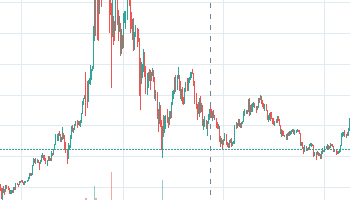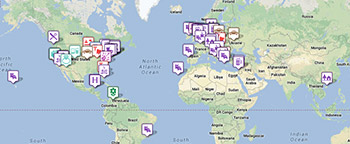Can’t quite figure out whether or not you need to use bitcoin tumblers? We breakdown when these clever services are the best option to get your coins squeaky clean.
Bitcoin mixers, tumblers, laundry services, blenders… whatever your service is calling itself, the fact remains that bitcoin tumblers are brilliant systems that take your coins, mix (blend, tumble, wash) them up with other coins, and deliver back to you coins that are no longer linkable to your person via blockchain analytics.
Simple, right?
“Bitcoin tumblers may seem a bit convoluted at first glance, but they’re actually a magnificently simple answer to a profound problem with bitcoin.” Say the brilliant geeks at Best Bitcoin Tumbler, a site offering the best news and information regarding these types of services. “The way blockchain works is equally incredible. It allows a fully accessible public ledger to exist. Meaning that bitcoin doesn’t need a centralized power in order to work. Even more incredible, this ledger is maintained by the very people who use bitcoin.”
The problem at hand is that of bitcoin analytics. So every time a bitcoin transaction is verified in the blockchain, those specific coins are directly tied with both the sender’s wallet address and the receiver’s wallet address. This isn’t really a problem in and of itself, but with new forced registration laws for wallets, those bitcoins can be easily tied with personally-identifying information. Meaning anyone with a bit of know-how can tell just how much bitcoin you own and what you do with it.
When Bitcoin Tumblers are Necessary
While this reality may not bother some people, there are definitely times where a bitcoin tumbler is your best bet and absolutely necessary. Here are the top five situations in which you will undoubtedly need a bitcoin tumbler if you want to keep your identity and your coin collection safe from prying eyes.
1. Transacting with High Volume Wallets
If you’re fairly crypto savvy, chances are you don’t keep the bulk of your coins in just one wallet. You’ll have a few different ones, some connected online (hot wallets), some offline (cold storage). However, if you plan on transacting any amount from a high volume wallet, you’re going to want to wash those coins first. Especially if you’re transacting a large amount.
This is because large transactions draw the eyes of anyone using blockchain analytics. This could be governments, big business, or even hackers and thieves. Being able to pinpoint the address of where that big transaction came from means they’re aware that that particular wallet has some pretty deep pockets.
2. Holding
Holding is the act of holding coins for longer-term storage. This is usually done for investment purposes, as people wait for the appreciation of bitcoin to blossom. Making their coins worth much more over time. Not unlike what you would expect from stocks or bonds.
While most crypto traders hold these types of coins in offline (cold) wallets, that only protects them to a point. Once those coins are traded again on the market in the future, their entire history is available on the blockchain, so cleaning coins before storing them is a must.
3. Securing New Hot Wallets
Anytime you have a wallet that is constantly connected to the internet (hot wallet), you’re exposing yourself constantly to hacks and heists. Not to mention other risks that can come from the exposure of identifying details. We can’t argue that having a hot wallet is incredibly convenient, mostly because it gives you greater access to liquidity and trade.
However, the more you use your hot wallet, the more often it addresses pops up on the blockchain. Which can easily give people an idea of how much bitcoin you have in stores, placing a target firmly on your wallet. Using bitcoin tumblers to secure these types of wallets, in conjunction with getting a new hot wallet every so often, can help deter these types of attacks.
4. Before and After Exchange Transactions
Exchanges are perhaps the open window to your identity when it comes to using blockchain analytics. Most exchanges are required to conduct KYC and many other types of verification on their users. Sometimes this is mandated by law, sometimes it’s for the exchange itself.
What this does it instantaneously tie your identity (not just your coin balance) to the bitcoin that you buy, trade, and sell on that exchange. If you don’t wipe this link early and often, then those coins can be traced back to who you are indefinitely.
5. Purchasing Anything from Merchants
Much like exchanges, merchants require personal identification as well as shipping and receiving addresses. So suddenly those coins don’t just tell a story about your holdings and what you’re purchasing with them- but also about who you are and where you live. Just let that all sink in for a minute.
By now, you know exactly what you need to do. That’s right, get yourself a bitcoin tumbler.



 Updated every 10 minutes
Updated every 10 minutes


